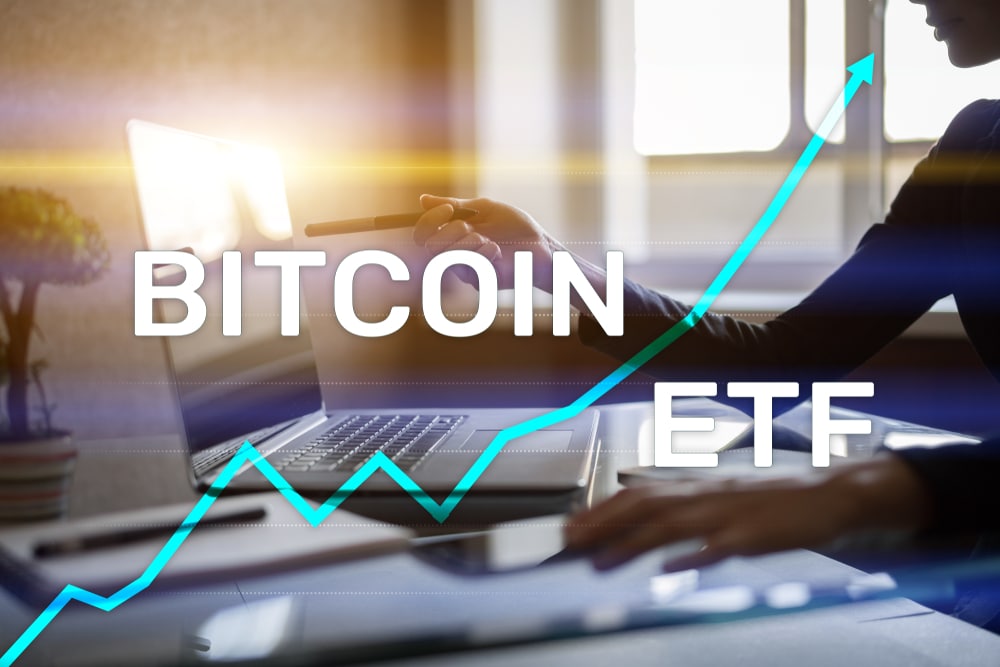Key Insights:
- Institutional investment in Bitcoin ETFs is growing, with Northwest Capital Management and City State Bank making notable acquisitions.
- BlackRock’s Bitcoin ETF sees substantial inflows, boosting Bitcoin’s price despite Germany’s significant BTC selloff.
- Financial institutions like the Bank of New Hampshire are cautiously entering the Bitcoin market, reflecting broader acceptance of digital assets.
Institutional investment in spot Bitcoin ETFs is rising, as evidenced by recent filings with the Securities and Exchange Commission (SEC). Managing over $5 billion in assets, Northwest Capital Management has taken a notable step by investing in BlackRock’s iShares Bitcoin Trust (IBIT). This move is part of a broader trend among institutional investors gravitating towards digital assets, contrasting sharply with the German government’s ongoing Bitcoin selloff.
Northwest Capital Management has revealed its investment in BlackRock’s IBIT Bitcoin ETF through a 13F filing, acquiring 52 units worth $1,775 in the second quarter of 2024. Although the amount is modest, it represents a strategic shift towards digital asset investments for the firm. This move could pave the way for future investments, reflecting a growing interest in the potential of Bitcoin ETFs among institutional investors.
City State Bank, an Iowa-based institution, also reported acquiring 33 units of BlackRock’s IBIT Bitcoin ETF during the same period. City State Bank has also maintained its holdings in the Grayscale Bitcoin Trust (GBTC), with 50 units acquired in the first quarter of 2024. These consistent investments indicate a strong belief in Bitcoin’s long-term prospects.
BlackRock Bitcoin ETF Attracts Substantial Inflows
The BlackRock Bitcoin ETF has seen significant inflows recently, signaling solid institutional demand. On July 9, BlackRock’s IBIT ETF acquired 2134 BTC, contributing to the upward momentum in Bitcoin’s price, now approaching $59,000. Continuous investments from various financial institutions bolster this positive market sentiment.
The Bank of New Hampshire (BNH) has also entered the Bitcoin ETF market. An SEC filing dated July 1, 2024, disclosed BNH’s investment of $9,389 in BlackRock’s IBIT ETF, acquiring 275 units. This move marks BNH’s initial foray into digital assets, suggesting a cautious but deliberate approach to embracing cryptocurrency investments. BNH is a subsidiary of Toronto Dominion (TD), a Canadian banking giant that reported Bitcoin ETF exposure in its first-quarter filings, highlighting a strategic trend within the TD group towards cryptocurrencies.
Institutional Adoption Versus German Selloff
The latest 13F filings indicate a continuation of the growing institutional adoption of Bitcoin ETFs. During the first quarter, 937 institutional investors collectively contributed over $10 billion in assets under management (AUM) to U.S. Spot Bitcoin ETFs. This trend persists into the second quarter, suggesting a sustained interest from established financial institutions in digital assets as viable investment options.
In stark contrast, the German government has been actively liquidating its Bitcoin holdings, recently offloading over 26,000 BTC to various exchanges. This large-scale selloff has contributed to downward pressure on Bitcoin’s price, briefly dipping below $54,000. The selloff has generated concerns, particularly in light of the upcoming Mt. Gox repayments, which have created uncertainty in the market.
Broader Implications for the Bitcoin Market
The increasing institutional investment in Bitcoin ETFs indicates a growing recognition of Bitcoin as a legitimate asset class among traditional financial institutions. This trend suggests that despite short-term volatility and market pressures, there is a strong belief in Bitcoin’s long-term value and potential for growth. The continued inflows into Bitcoin ETFs, especially from prominent institutions like Northwest Capital Management, City State Bank, and the Bank of New Hampshire, underscore this confidence.
As the second quarter progresses, monitoring further 13F filings and institutional movements in the Bitcoin ETF market will be crucial. The contrast between institutional FOMO and the German government’s selloff highlights the complex dynamics in the cryptocurrency market. The ongoing developments will likely influence Bitcoin’s market trajectory and the broader acceptance of digital assets in traditional finance.
At Tokenhell, we help over 5,000 crypto companies amplify their content reach—and you can join them! For inquiries, reach out to us at info@tokenhell.com. Please remember, cryptocurrencies are highly volatile assets. Always conduct thorough research before making any investment decisions. Some content on this website, including posts under Crypto Cable, Sponsored Articles, and Press Releases, is provided by guest contributors or paid sponsors. The views expressed in these posts do not necessarily represent the opinions of Tokenhell. We are not responsible for the accuracy, quality, or reliability of any third-party content, advertisements, products, or banners featured on this site. For more details, please review our full terms and conditions / disclaimer.



